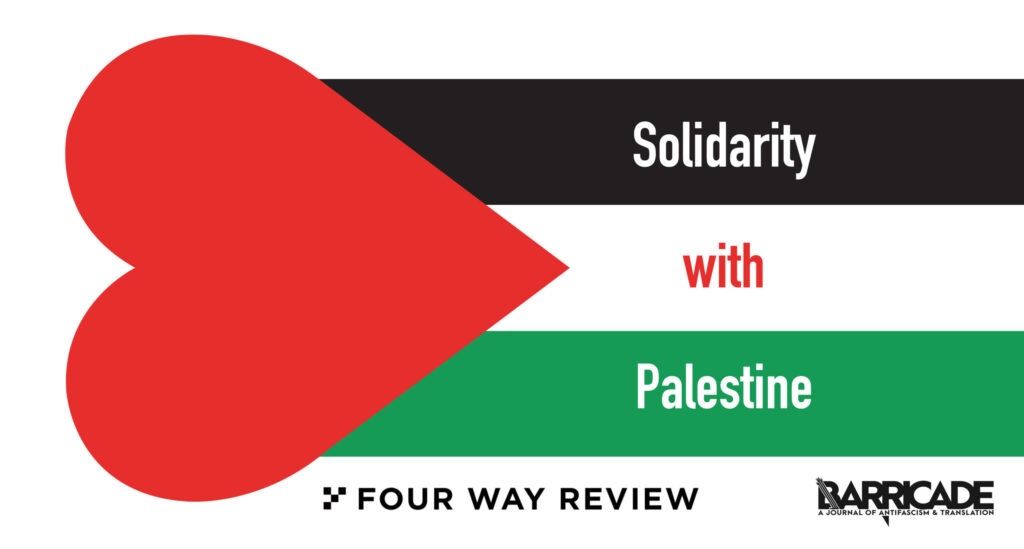Translator’s note: Yahya Hassan grew up in Aarhus, Denmark in the early 2000s as a son of Palestinian refugees. At the center of the cultural landscape of the Arab Danes is the infamous 2005 printing of cartoons of the Prophet Muhammad that appeared in the Danish newspaper Jyllands-Posten. These controversial cartoons sparked protests all over the world. One such protest in Copenhagen saw a gathering of over 3,000 Arabs. This demonstration presented a peaceful, bilingual message, where Anja Kublitz reports “all (the) banners and signs were printed in Arabic as well as in Danish, displaying statements such as ‘No to the clash of civilizations, yes to the dialogue of civilizations’ and ‘No to racism and fanaticism, yes to peace and co-existence.’” 1 Kublitz’s field work involved discussing the incident with different demographics. While explaining the perspective of second-generation Arab Danes, Kublitz writes that “growing up in Denmark, they had developed a double perspective (citing Edward Said), and during the demonstration they had been anticipating how indigenous Danes might perceive it.”2 It is this exact double perspective where Hassan positions his work. In the poem TVANGSFJERNET/ FORCED REMOVAL, he writes:3
[…]
ON THE PHONE YOU SWITCH BETWEEN
CALLING ME BROTHER AND DANE
[…]
BUT DO WE REALLY KNOW EACH OTHER
DO WE HAVE ANYTHING IN COMMON OTHER THAN PAIN
NOW YOU’VE GROWN UP BIG AND HANDSOME
AND I’VE JUST GROWN UP DANISH
This is the everyday in which Hassan was raised—he would have been ten years old while the Jyllands-Posten controversy was unfolding. Coming less than ten years after the cartoon controversy, Hassan’s work would prove to be controversial in its own way. This was a second-generation Danish-Palestinian who critiqued his own people. What’s incredible about Hassan’s work is that he had different sides of the political spectrum reading and discussing poetry. Criticizing the refugee community garnered the attention of the Danish right as well as poetry contemporaries on the left, such as the Iranian-Swedish poet Athena Farrokhzad, who said:
Damn, a young poetry debutant with a Palestinian background who accuses the Muslim diaspora of hypocrisy, misogyny and general barbarism, what a godsend for the Danish People’s Party. 4
Hassan’s response was troubling, but unsurprising from an idealistic, angry teenage poet:
I think she is a hypocrite. She talks about racism all the time and says she has experiences that she can not talk about for something she calls a white society, because she feels so much racism. But I think this is racism in itself.5
According to Agri Ismaïl’s insightful analysis of this exchange:
It could be argued that in spite of the rage filling Hassan’s pages, permeated as they are with the cynicism of disaffected youth, he shows an idealism that Farrokhzad can no longer afford as a mere voice amongst many, without having to consider the work’s reception.6
— Jordan Barger
YAHYA HASSAN was a poet and “a stateless Palestinian with a Danish passport.” He was an iconoclast who sat on neither side of the political sphere, criticizing both Danish and Palestinian culture for failing his generation. His first collection of poems sold over 120,000 copies. Its follow-up was released a few months before his untimely passing at the age of 24, on April 29th, 2020.
JORDAN BARGER is a translator of Norwegian and Danish, with an MFA in Literary Translation from The University of Iowa. Translations have appeared in Poetry Magazine, Poetry Review UK, FENCE and Sleepingfish XX. Their translation of Sigbjørn Obstfelder’s The Red Drops appeared onstage in Philadelphia thanks to Sewer Rats Productions.
Barricade is working in collaboration with Four Way Review to uplift Palestinian voices and projects in solidarity with the Palestinian cause. View the rest of our Solidarity with Palestine series here and Four Way Review‘s publication here. View more details on the series and our call for contributions here.

- Anja Kublitz (2010) The Cartoon Controversy Creating Muslims in a Danish Setting Social Analysis, Volume 54, Issue 3, Winter 2010, 107–125 © Berghahn Journals doi:10.3167/sa.2010.540307
- Ibid.
- YAHYA HASSAN Gydendal 2013. All poems are from YAHYA HASSAN (2013) and appear in my English translation.
- Tr. from Aftonbladet.
- Tr. by Agri Ismaïl from Dagens Nyheter.
- 3am Magazine

